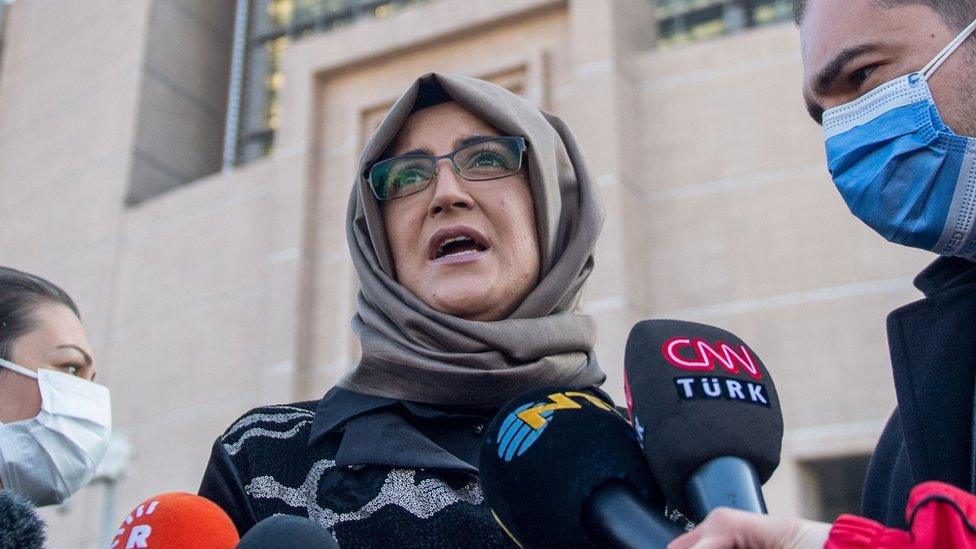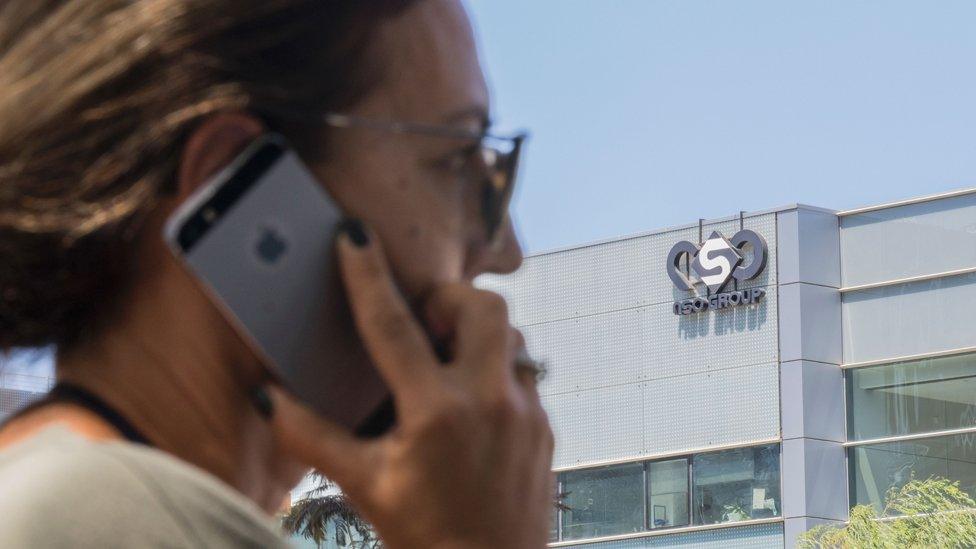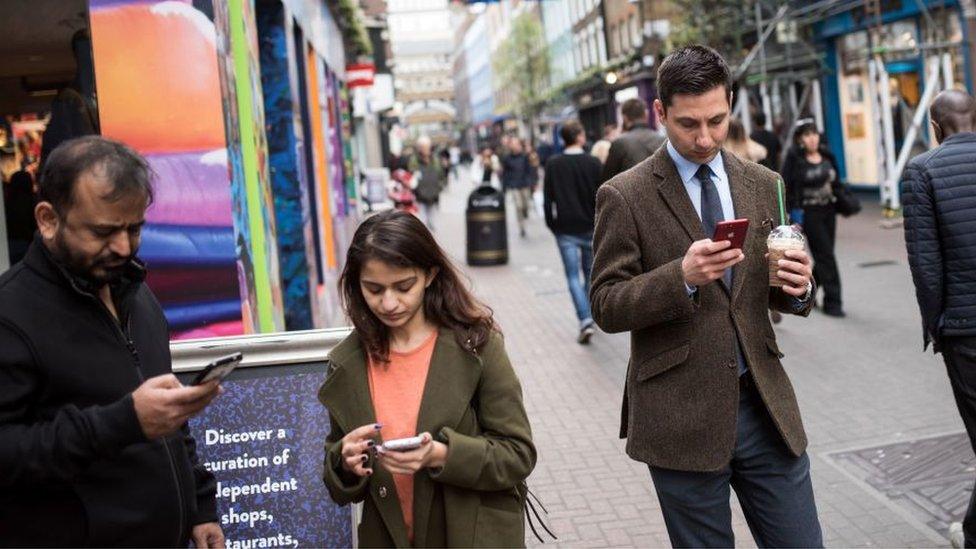Pegasus: French President Macron identified as spyware target
- Published

French officials said that if true the reports about President Macron would be very serious
French President Emmanuel Macron is one of several world leaders believed to have been targeted for phone hacking using spyware, media reports say.
The software, known as Pegasus, infects phones and allows operators to spy on their targets.
The leaders are on a list of some 50,000 phone numbers of people believed to be of interest to clients of Israeli-based firm NSO Group. The list was leaked to major news outlets.
NSO denies any wrongdoing.
It says the software is intended for use against criminals and terrorists.
It says it is made available only to military, law enforcement and intelligence agencies with good human rights records.
The original investigation which led to the reports - by Paris-based NGO Forbidden Stories and the human rights group Amnesty International - was "full of wrong assumptions and uncorroborated theories", the Israel-based group said.
The reports are part of a series of news articles suggesting thousands of prominent people have been targeted.
French newspaper Le Monde reports that Moroccan intelligence services identified a phone that Mr Macron had been using since 2017.
Morocco has denied being a client of Israeli manufacturer of Pegasus.
Being on the list does not mean that the software was used but it does mean that the person was a potential target.
It is not clear if the software was ever installed on the French president's phone.
Numbers on the leaked list are also said to include those of President Baram Salih of Iraq and South Africa's Cyril Ramaphosa, as well as the current prime ministers of Pakistan, Egypt and Morocco, and the King of Morocco.
More than 600 government officials and politicians from 34 countries are on the list.
The French presidency said that if the revelations were true, they would be very serious.


Foreign leaders are always a top target for spies - intercepting their communications means uncovering their intentions and secrets.
Politicians and officials know they are frequently targeted but when this becomes public it can cause real fall-out.
Especially because it is not always just a country's adversaries who are involved.
Back in 2013, it emerged that America's NSA was potentially tapping dozens of world leaders - including ally German Chancellor Angela Merkel's cellphone, causing severe embarrassment and a fairly hefty diplomatic row.
What is notable about the latest reports is that the possibility of carrying out surveillance against foreign leaders is now potentially for sale and available to a much wider range of states.
It is not clear how many of those on this list were actually targeted but even the possibility will do much to raise the pressure on NSO Group - and the governments who might have targeted other leaders.
- Published22 July 2021

- Published19 July 2021

- Published30 October 2019
